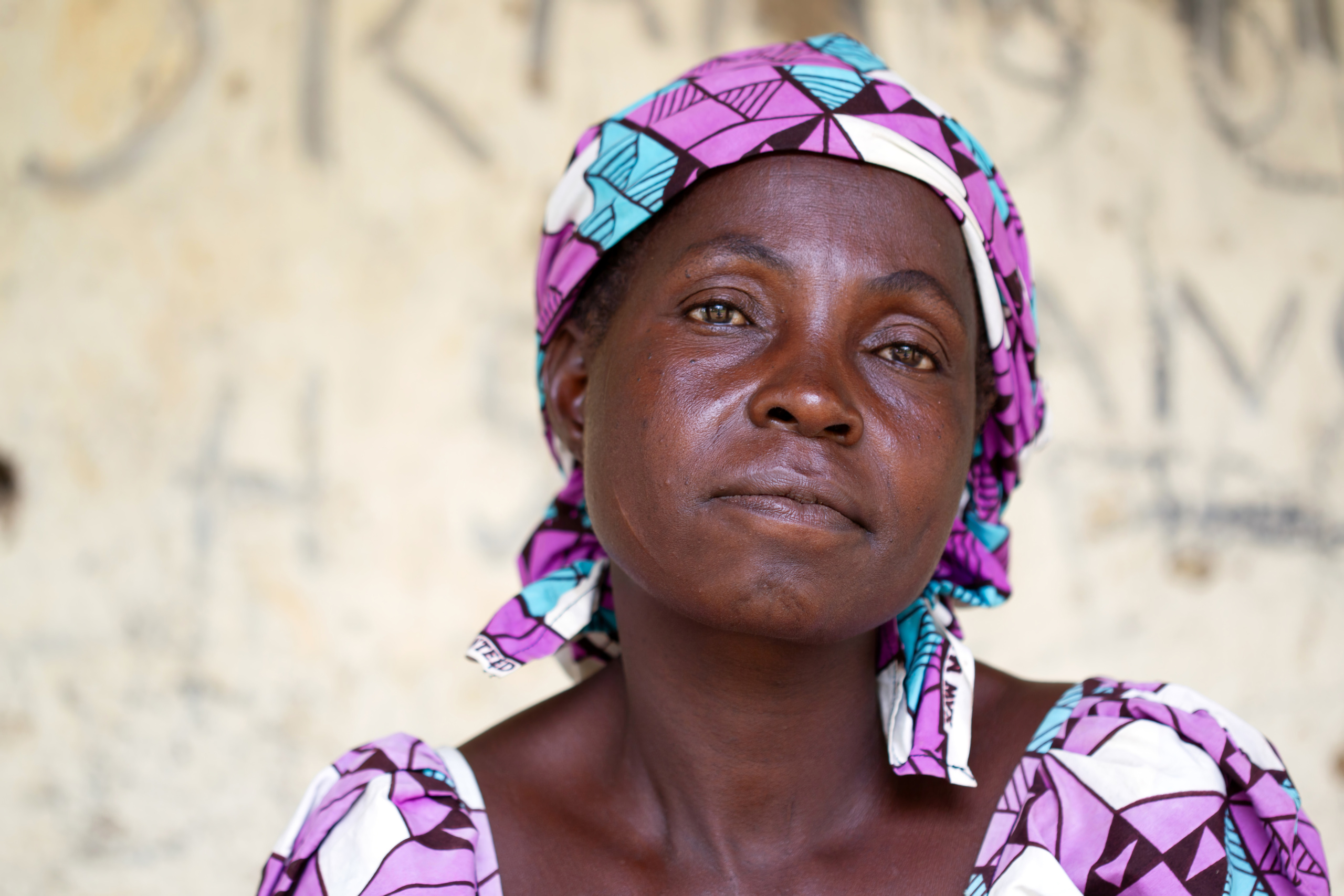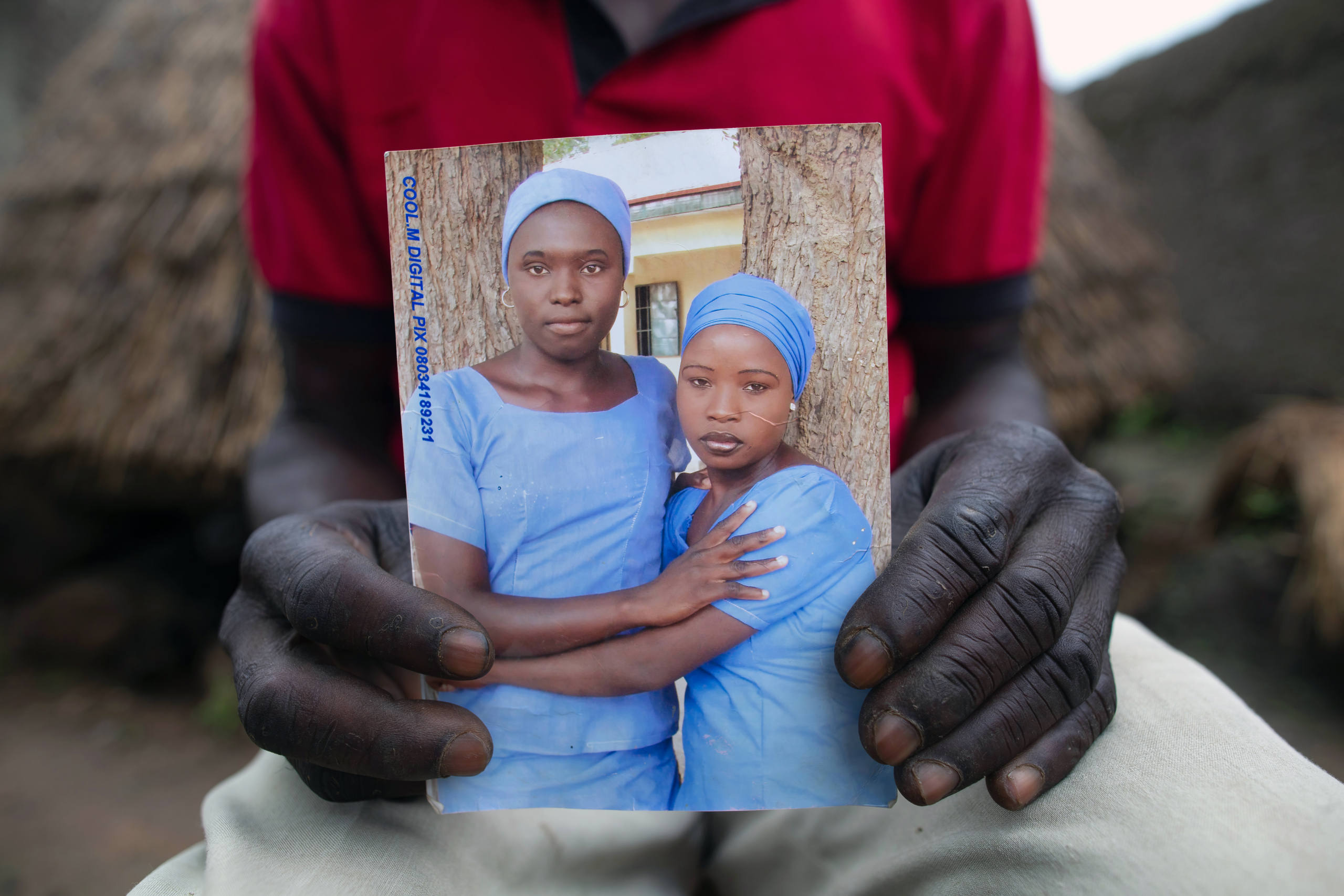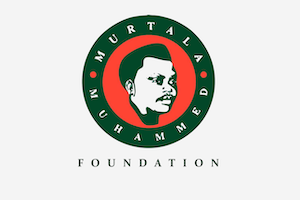This photo exhibit showcases poignant images from the renowned book “The Stolen Daughters of Chibok,” commissioned by the Murtala Muhammed Foundation in 2015 during the heat of the Boko Haram insurgency when the fate of the Chibok girls remained unknown. This compilation is a heartfelt portrayal of the stories shared by the mothers and a few fathers and siblings of the missing daughters, offering a glimpse into their unwavering strength and resilience. Guided by the vision of the Murtala Muhammed Foundation and the CEO, Aisha Muhammed-Oyebode, this project aims to shine a light on the challenges faced by the Chibok community and stands as a tribute to the enduring love and hope of these mothers. The evocative photographs in the book were commissioned by the MMF and skillfully captured by the talented photographer Akintunde Akinleye.



Stolen Daughters of Chibok
The Murtala Muhammed Foundation
Panel Discussion at SOAS University of London
A powerful panel discussion was held on Monday, 14 April 2025, from 10:00 AM to 12:00 PM at SOAS University of London. The Stolen Daughters of Chibok panel discussion explored resilience, justice, and recovery—11 years after the abduction that shook the world.
Held in the Brunei Gallery Theatre, the panel brought together advocates and thought leaders on the ongoing fight for the 88 girls still in captivity.
Exhibition Statement
Select moments often define a nation. On April 14, 2014, heavily armed members of the terrorist group Jama’atu Ahlis Sunna Lidda’awati wal-Jihad, commonly known as Boko Haram, forcibly abducted 276 Nigerian girls and young women from Government Girls Secondary School in Chibok, Borno State, Northern Nigeria. On the night of the abduction and several days immediately after, fifty-seven managed to escape, leaving 219 in captivity. As of early 2021, 107 more have made it home: four by Nigerian military/para-military intervention, twenty-one by negotiated release in October 2016, and eighty-two more in May 2017. Increasingly complicated negotiations continue for the 98 girls who remain captive.
Public detachment quickly took root perhaps because for so long the girls were not acknowledged as individuals but as numbers: 276, 57, 219, 4, 82, 98. With their identities masked, their anonymity may have obscured any sustained effort to seek them out and to rescue them. For a long time, the facelessness of our stolen girls also left the mothers from whom they were stolen unacknowledged, their losses unproclaimed. The goal of the book, The Stolen Daughters of Chibok is to give narrative power to numbers and reverse the voicelessness of not only the stolen girls of April 14, 2014, but also the mothers of this community. They are all the daughters of Chibok, and by giving one generation a voice I give another generation a face.
The goal of this book is to inspire continued urgency, extensive, and relentless action towards the recovery of our remaining girls and all the other women and girls kidnapped by Boko Haram in the last ten years. The Stolen Daughters of Chibok is a tribute to these daughters of all ages. I hope we can evoke their lives before abduction — their joy, their innocence, and their promise — and through their stories we can bear witness to the trauma of a community desperately learning to cope.
Akintunde Akinleye
Akintunde Akinleye is a photojournalist whose images center around photo-activism and trail narrative subjects. A former Reuters photographer covering West Africa, his photography has documented politics and sociocultural history. He is the first Nigerian photographer to receive the World Press Photo Prize (2007), for his image of a pipeline explosion in Lagos. The same year, he received the National Geographic All Roads award. His photography has appeared in The New York Times, The New Yorker, and other publications.
Dr. Aisha Muhammed-Oyebode
Aisha Muhammed-Oyebode is a Nigerian lawyer, entrepreneur, author, activist and philanthropist. She is currently the Group chief executive officer of Asset Management Group Limited and the chief executive officer of Murtala Muhammed Foundation. Muhammed-Oyebode is the first of six children born to the late General Murtala Ramat Muhammed, a former Head of State of Nigeria. Her mother is Ajoke Murtala Muhammed. Muhammed-Oyebode’s father was assassinated when she was twelve years old.
Muhammed-Oyebode had her secondary school education at the Queen’s College, Lagos. She studied law at the University of Buckingham, UK, and holds an LLB Honors degree. Her Master’s in Law degree is in Public International Law from King’s College, University of London and she also has an MBA in Finance from the Imperial College, London. She has a doctorate degree from the SOAS University of London.


Photos by
Akintunde Akinleye
Exhibition On View
SOAS University of London | April 14, 2025
Located At
Eychner Atrium, SOAS University of London | 10 Thornhaugh Street London WC1H 0XG United Kingdom
Viewing Hours
SOAS University of London | 10:00 - 16:00 BST. Doors at 9:30am
Past Exhibitions
The Africa Center, New York, NY | April 12th - 15th, 2024


